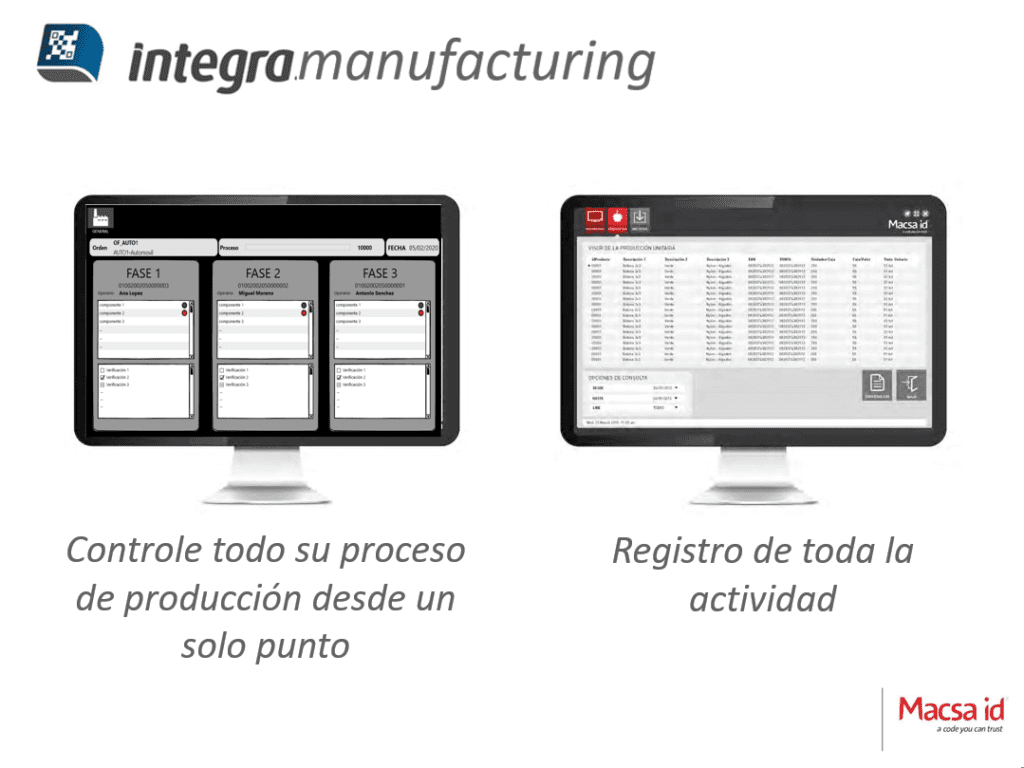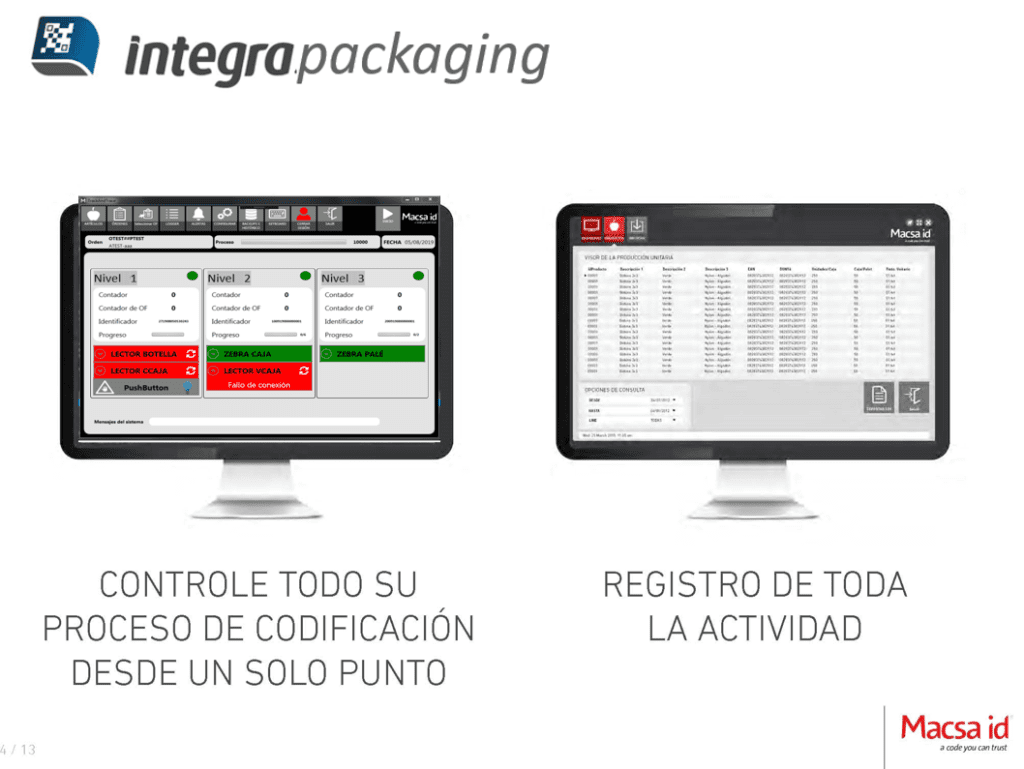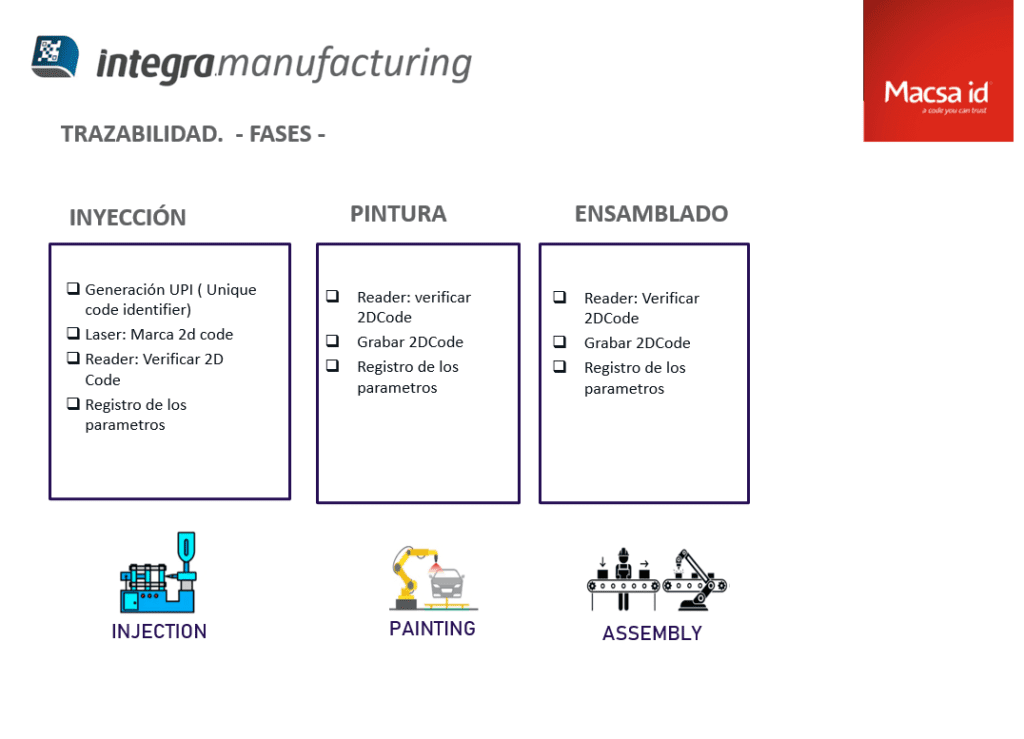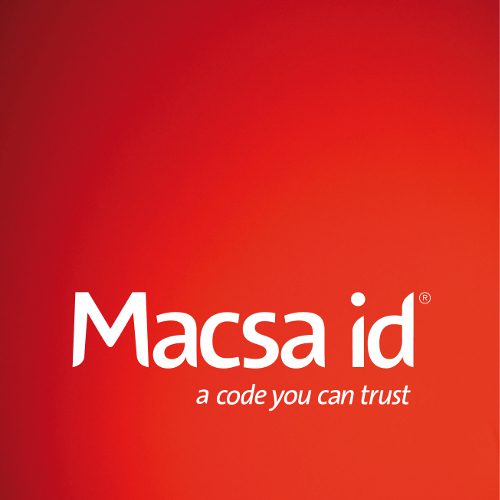Modern cars have about 4,000 parts on average, all arranged to perfection so that they are able to take us from point A to B without problem. Traceability in the automotive sector is one of the most important aspects of today because of the need to know each individual variable of the manufacturing process, the assembly to which a part belongs or which part has been used for which vehicle. This goes hand in hand with a significant increase in the number of projects carried out, both by vehicle and component manufacturers.

Traceability in the automotive sector
Traceability in the production process
During the production process of any part of a vehicle there are infinite numbers and types of transformations that affect the part itself. This ranges from cutting and machining metal parts to the mixing of the pellets (masterbach) that end up becoming a plastic part in the polymer injection processes. This involves a huge amount of physiochemical variables, which must be taken into account when finalizing the product with the desired quality, repeatability and cost. It should also be added that during this process there are a range of quality controls that must also be be applied to the part, not to mention the recording of additional parameters to the manufacturing process itself, such as supplier information, materials that make up the part or supply variables.
When the final product is not a single part, but rather an assembly of parts, we can register all the parts that make up the assembly. Data Matrix codes (DT hereafter) can be scanned to obtain this information, avoiding human error in data entry. A range of information can be coded, such as operators, tools or devices involved in the assembly, as well as their intrinsic variables.

Macsa uses the widest range of lasers on the market in the solutions it provides for these projects, from CO2, YAG or FIBER lasers for metals all the way to UV or GREEN lasers for polymers, meaning we can code every material used in this sector.
The starting point of the traceability process always occurs when the part is in the early stages of the production process. This is where we mark the part, usually with a DT, this code will be the part’s ID for the rest of its life. Variables like the manufacture date of the part, base materials with their suppliers, batches or supply information are registered here, which builds up the information in the product’s database. The part is identified with DT readers at different points in the production process, usually at the entrances of the various machines that make up the entire manufacturing process.
The variables of interest are defined for each machine, which are then extracted through various communications methods with each machine (Profinet, Modbus, EtherNet/IP, etc…) or integrated recording devices for the necessary variables. All this data is recorded in the traceability system database (hereafter DB). An SQL type DB is capable of holding hundreds of millions of records with the guarantee of storing several years of production. We also make the Macsa database accessible to other databases such as Oracle or DB2. We also make adaptations to ERPs, so that this information is available and as such, Macsa offers the Integra Manufacturing solution, a flexible, robust software that adapts to the needs of customers

Logistics traceability
Traceability in the distribution of parts is of utmost importance in the automotive sector. Not knowing which parts have been assigned to which vehicles can mean a significant cost overrun for companies. A logistics traceability system is essential when it comes to the detection of defective parts already manufactured and assembled in vehicles. In such cases, the manufacturer of the defective part is obliged to locate these parts in vehicles around the world for exchange or revision.
Macsa also provides and manufactures coding equipment for all stages of product packaging as a manufacturer of turnkey solutions. Here, laser technology also plays an important role, being able to code at all stages of product packaging. Alternatively, our Print&Apply and Inkjet systems also perform this task if necessary. Our logistics traceability software Integra Packaging has the ability to record up to 5 levels and guarantees traceability from the part to the pallet. It can have an ethernet connection with all our coding devices, lasers, Inkjet printers and Print&Apply solutions, so that we will be certain in the knowledge of the country, plant and specific car any defective part was assigned to.

If you are looking for the best laser solution, do not hesitate to contact us:


